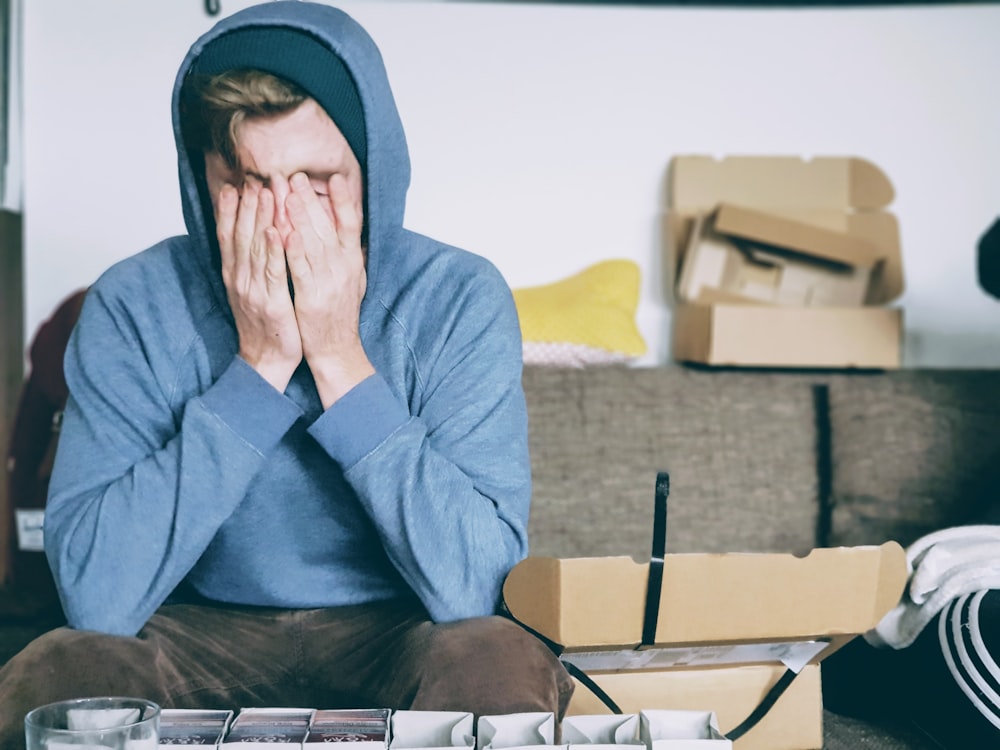Getting a good night’s sleep sets the tone for the next day. If you don’t sleep well, whether because of sleep apnea or a crying baby, you’re likely to feel irritable and exhausted when the alarm goes off in the morning.
While just about everyone has the occasional off day due to a poor night of sleep, individuals who consistently experience low-quality sleep night after night can experience depression, anxiety, and other mental health problems.
If you don’t take action to improve your sleep quality, your mental and emotional well-being could suffer.
The Complex Relationship Between Sleep and Mental Health

One of the unique elements about sleep and mental health is that each can negatively impact the other. In fact, studies have concluded that depression and sleep deprivation have a bidirectional relationship. This means that the symptoms of both will often reinforce each other. Someone who is struggling from depression will likely begin to experience worse sleep. At the same time, someone who is having trouble sleeping is more likely to become depressed.
In other words, each problem contributes to the other — which likely explains why as many as 75 percent of individuals with depression also have symptoms of insomnia.
Part of the reason why sleep is so important for mental health is because the brain processes emotional information during REM sleep. When the body doesn’t get enough REM sleep, the brain is essentially unable to consolidate and remember positive thoughts and memories. Needless to say, this can have a significant negative impact on someone’s mood and self-esteem.
Obstructive sleep apnea, in particular, has been closely linked with mental health challenges. This condition causes the body to temporarily stop breathing during sleep, resulting in disturbed sleep when the individual briefly wakes up and then falls back asleep. As with other sleep disorders, depression and other psychiatric conditions are believed to be both a contributor to and side effect of obstructive sleep apnea.
Signs That Poor Sleep is Affecting Mental Health

Individuals who consistently experience trouble sleeping are more likely to exhibit a variety of mental health symptoms, including depression and anxiety. They may be more irritable and prone to mood swings. Many people whose poor sleep is negatively affecting their mental well-being may no longer feel like they have the energy to do the things that they enjoy. This can also contribute to feelings of loneliness for those who feel they don’t have the energy to see family or friends.
Trouble concentrating and planning can also contribute to problems at work and in relationships with family and friends. These disruptions to day to day living can make it hard for people to find enjoyment in their favorite activities, and can also put strain on their relationships.
These serious challenges don’t come about all at once. A single night of bad sleep is certainly likely to make you feel irritable and grouchy. But when you consistently get poor sleep, these negative emotions and experiences tend to compound, creating a continuous cycle where the affected person feels mentally and emotionally under the weather on a near-constant basis.
Symptoms such as these that continue for weeks or even months are a clear sign that there is a serious underlying issue that needs to be addressed.
Addressing Mental Health Challenges

Improving one’s mental health is a multifaceted process that often involves taking steps to improve sleep quality. Poor sleep hygiene habits, such as consuming alcohol or caffeine in the evening, using electronic devices at bedtime, or not having a set bedtime routine, can make it harder to fall asleep and stay asleep.
In addition to addressing these common concerns, you can improve your sleep quality by blocking sources of light or sound that could disrupt your sleep, exercising during the day (which improves both sleep quality and mental health), and establishing a relaxing nighttime routine (such as journaling or taking a warm bath) to get your mind and body ready for bed.
However, because each person’s mental health needs (including underlying causes) can be different, it is essential that individuals suffering from depression or other mental health challenges meet with a doctor or psychiatrist.
Diagnosing and treating both the mental health condition and any underlying causes that could be contributing to it are key to improving one’s well-being. Common treatment methods for mental health disorders, include cognitive behavioral therapy, or talk therapy, in which a mental health professional helps individuals address harmful thinking patterns and negative self-talk.
Some people may also need to take medication to address chemical imbalances in the brain that contribute to their mental health challenges. If a specific sleep disorder is identified to be involved, a treatment plan for that condition may also be implemented.
Get the Help You Need With a CPAP Machine
For individuals who struggle with obstructive sleep apnea, few things will prove more important to improving sleep quality and mental health than using a CPAP machine. A CPAP machine prevents the body’s airways from closing off during sleep, ensuring that users enjoy an uninterrupted night of rest. When you feel truly refreshed and rested at the start of a new day, your mood and energy levels will begin to improve.
Of course, the cost of CPAP machines and other related equipment and accessories can feel like a lot to take on, particularly for individuals without health insurance. Thankfully, Help Medical Supplies can make a difference with discounted pricing, free shipping on orders of $89 or more, and available financing.
With affordable medical equipment to manage your sleep disorder, you can get the quality sleep you deserve so you will feel your best — physically, mentally, and emotionally.

